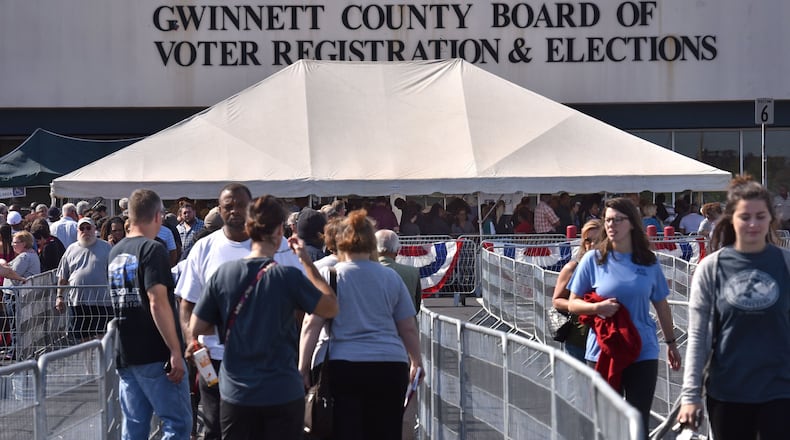Georgians could continue to use federal tribal identification cards as proof of citizenship but would face a 26-month deadline to correct any discrepancies on their voter registration forms under a bill sent to Gov. Nathan Deal for his signature.
House Bill 268, sponsored by state Rep. Barry Fleming, R-Harlem, is generally considered a cleanup of the state's election code but has drawn the ire of some voter advocacy groups. They want Deal to veto the measure because they claim it violates the spirit of a recent legal settlement over how Georgia verifies voter registration information.
A federal lawsuit last year accused Georgia of disenfranchising minority voters because of an “exact match” requirement used by the state on registration forms that critics said blocked thousands of them from voter rolls. Among concerns the suit cited was that the federal and state databases used to match the information may contain errors that cause applicants to be wrongly flagged in the system.
Under HB 268, voters could still cast a ballot in an election as long as they registered in time within the 26-month period — even if they were flagged by the system. They would need to provide identification information to correct the discrepancy at the polls before voting, or they could cast a provisional ballot and provide the information to election officials afterward.
The bill initially also proposed doing away with tribal cards as a valid form of identification, but lawmakers in the final hours of the legislative session Thursday reinstated that provision. Other changes in the bill include creating a 150-foot buffer requirement outside of polling locations for voter assistance groups and easing absentee voting rules during presidential election years.
A spokeswoman for Georgia Secretary of State Brian Kemp, who is the state’s top elections officer, per policy declined comment on the pending legislation.
Andrea Young, executive director of the ACLU of Georgia, called it a “burden on the citizenry when there’s not a problem.”
“We have asked our members to write to the governor asking for a veto,” Young said. “We will be meeting and communicating with his office with respect to our concerns.”
About the Author
Keep Reading
The Latest
Featured




